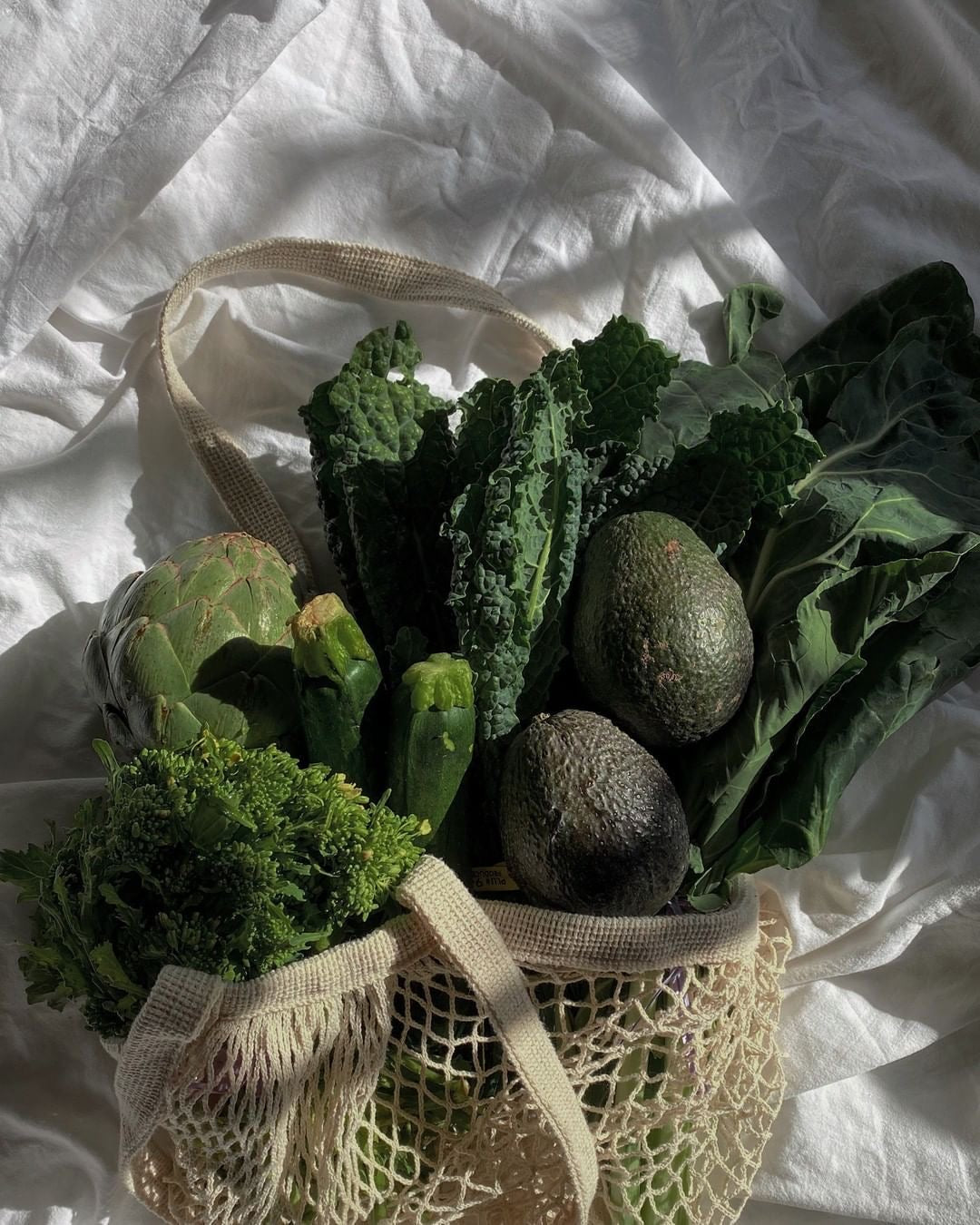Every person’s body is going to digest and tolerate food differently, just as every person’s personality makes them respond to life situations differently. What might cause bloating for one person - might be totally fine for another; It all comes down to your bio-individuality.
However, there are certain foods, that due to their high fiber content, macro nutrient breakdown, or simply their chemical makeup, are physically more challenging for your body to digest, triggering gas build up, stomach pain, and bloating, making these foods important to look out for if you’re naturally more prone to experiencing stomach issues.
The good news, you don’t have to completely avoid these foods all together in order to keep your digestion happy, as that would leave you with few foods in your diet that you could enjoy daily. Instead, you can expand your focus to not only be aware of what food you’re eating daily, but HOW that food is prepared.
There are several simple cooking guidelines you can follow and apply in the kitchen that will help boost your food to be more optimally digested in your body, reducing the likelihood of any unwanted side effects post-meal and keeping your digestion working smoothly.
Think of this as cooking for your digestion 101 - Let’s dive in and break it down by method.
Steaming:
When it comes to gently prepping your food, steaming is the perfect technique, as it helps retain the nutrients of your food, while simultaneously softening down the molecules to reduce bloating during the digestion process. This makes your food easier to digest, requiring less energy from your body to be exerted in order to break everything down, resulting in less undigested material lingering in your system. The foods you should consider steaming for best digestion are:
-
Broccoli
-
Cauliflower
-
Zucchini
-
Spinach
-
Lentils
-
Oats
-
Rice
-
Quinoa
-
Edamame
-
Beets
Roasting:
Roasting is the ideal way to boost flavor in your food, while also reducing the gas-causing compounds within them that generally lead to an excess build up of gas, causing bloat, stomach discomfort, and cramps. The heat of the oven also neutralizes antinutrients, improving the bioavailability of the essential nutrients in your food. Some of our favorite foods to roast are:
-
Carrots
-
Sweet potatoes
-
Brussel sprouts
-
Bell peppers
-
Mushrooms
-
Chickpeas
-
Pumpkin seeds
-
Sunflower seeds
-
Almonds
Sauteing or Braising:
Known to be two of the best methods for especially fibrous veggies, these two cooking techniques use heat to break down the extra tough fibers and cell walls within your food, making nutrients easier for your body to absorb. This reduces digestive effort as a result, helping your digestion work smoothly even against the most fibrous foods, producing significantly less gas build up and bloat. The fibrous veggies you should keep an eye out to saute or braise are:
-
Garlic
-
Cabbage
-
Kale
-
Peppers
-
Fennel
-
Leeks
These are just simple guidelines, and of course you can always prepare these foods in other ways if you’d like, but if you are looking to boost your body’s ability to absorb your food’s nutrients and keep your digestion running smoothly, you now know what to do.
Raw:
In contrast, it’s also important to point out and make sure you know what NOT to do in terms of how you consume your food to avoid digestive issues and gut irritation. The major triggers to look out for here and steer away from are certain foods - in their raw form. Generally, this pertains to foods with a large fibrous structure that most of the time your body relies heavily on the cooking process to help properly digest, and so when they are consumed raw, your body struggles to break them down successfully. This spikes gas build up and bloating in response. The foods to avoid raw, especially if you experience stomach issues, are:
-
Broccoli
-
Cauliflower
-
Cabbage
-
Mushrooms
-
Kale
-
Onions
-
Garlic
-
Beans
-
Unripe bananas
-
Raw nuts
How you choose to cook your meals could be the difference between a lovely, nurturing evening at home, to an uncomfortable night of bloating and pain, leaving you curled up in a ball on the couch. When it comes to eating for your digestion, simple shifts in how you prepare your food can go a long way, helping to support your digestive system, rather than work against it. Only you know what actually affects your body or not, and sometimes it comes down to trial and error to truly understand your body’s sensitivities and your triggers.
The best way to learn what food actually works for your body is to track your irritators. Write down what you eat, how you feel 30-60 minutes after, and any changes in your bloating, mood, energy, and skin, as this will help you build an awareness of how food impacts your body.
Over time, you will begin to identify patterns and connect the dots between what you eat and how you feel, uncovering your personal roadmap to optimal digestion and feeling your best!
For an extra boost for your digestion and bloat prevention, take 1-2 of our Gut Glo capsules daily.





